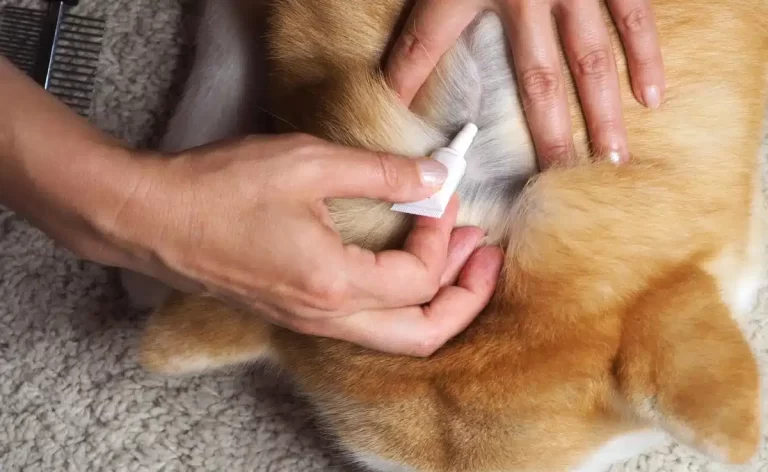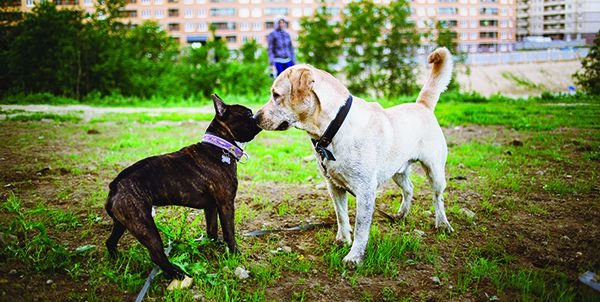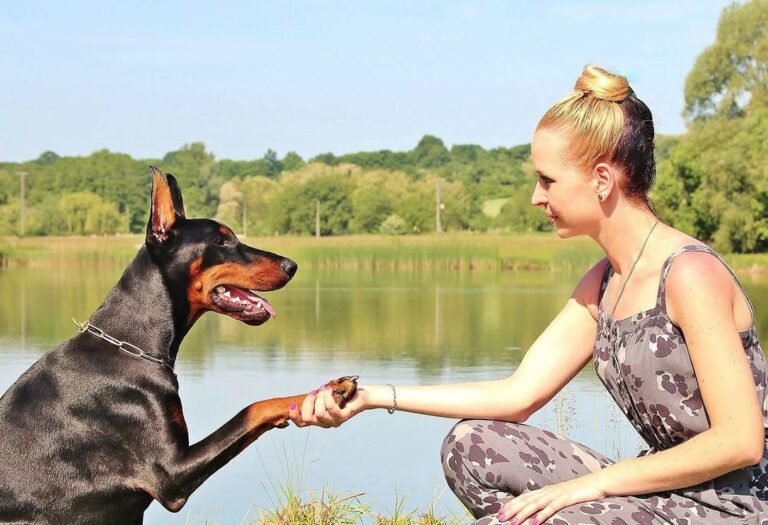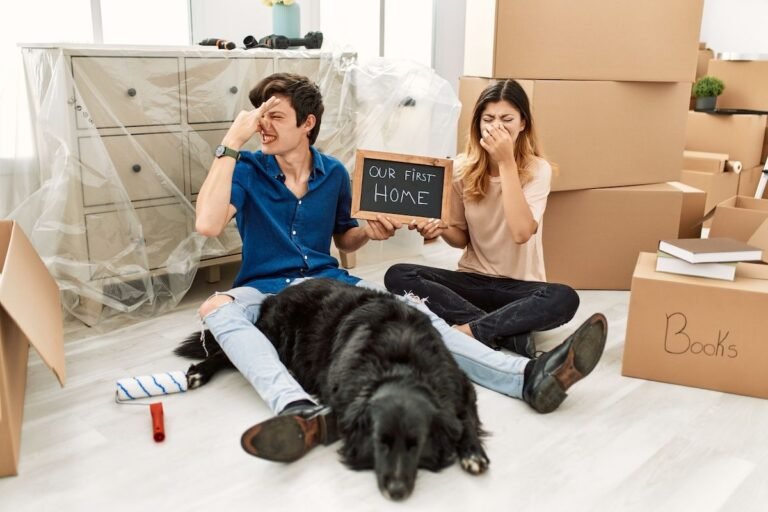How To Stop Your Dog From Peeing In The House
Why does my dog keep peeing in the house?
Dogs may urinate in the house for various reasons, and it’s essential to determine the cause to address the issue effectively. Some common reasons why dogs urinate indoors include:
- Incomplete House Training: If your dog is a puppy or a new addition to your home, they may not be fully house-trained yet. House training takes time and patience. Consistent positive reinforcement, a regular schedule for bathroom breaks, and supervising your dog can help with training.
- Medical Issues: Urinating in the house can be a sign of a medical problem, such as a urinary tract infection, bladder stones, diabetes, or other health issues. If your dog has sudden changes in urination habits or if the behavior persists, it’s important to consult your veterinarian to rule out any underlying medical conditions.
- Stress or Anxiety: Stress or anxiety can lead to changes in your dog’s behavior, including inappropriate urination. Major life changes, new environments, or separation anxiety can trigger stress-related urination. Behavior modification, training, and in some cases, medication can help reduce anxiety.
- Marking Territory: Unspayed or unneutered dogs may mark their territory by urinating in the house. Spaying or neutering can reduce this behavior. Some spayed/neutered dogs may also mark if they encounter a new scent in the home.
- Old Age: Older dogs may experience incontinence due to muscle weakness or other age-related issues. Incontinence can lead to accidents in the house. Your veterinarian can provide guidance on managing incontinence in older dogs.
- Submissive or Excitement Urination: Some dogs may urinate when they are excited, anxious, or submissive. This is more common in puppies but can occur in adult dogs as well. Behavior training can help address this issue.
- Changes in Routine: Changes in your dog’s daily routine, such as meal times, walk schedules, or changes in your own schedule, can lead to urination issues. Dogs thrive on routine, so consistency is important.
- Dirty Litter Box (for Indoor Cats): If you have indoor cats, your dog may be urinating in the house due to the scent of a dirty litter box. Cats can be very sensitive to changes in their environment and may react by urinating inappropriately.
To address the problem of your dog urinating in the house, it’s important to identify the underlying cause. Start by ruling out medical issues with the help of your veterinarian. If there’s no medical problem, consider behavioral training and addressing any environmental or routine factors that may be contributing to the behavior. Consulting with a professional dog trainer or a veterinary behaviorist can be beneficial if the issue persists or if you’re unsure how to correct the behavior effectively.
How do I discipline my dog for peeing in the house?
Disciplining a dog for peeing in the house should focus on positive reinforcement, consistency, and addressing any underlying issues that may be causing the behavior. It’s important to note that punishment after the fact is usually not effective and can create fear or anxiety in your dog. Instead, consider the following positive and constructive approaches:
- Rule Out Medical Issues:
- If your dog suddenly starts peeing indoors, it’s essential to rule out any potential medical issues. Urinary tract infections, bladder problems, or other health issues may be contributing to the behavior. Consult with your veterinarian to rule out any medical concerns.
- Establish a Routine:
- Set a consistent schedule for feeding, walks, and bathroom breaks. Dogs thrive on routine, and having a predictable schedule can help reduce accidents in the house.
- Supervise and Monitor:
- Keep a close eye on your dog, especially if they are not fully house-trained. Supervise them indoors and take them outside frequently, particularly after meals, playtime, or waking up.
- Positive Reinforcement:
- When your dog pees outside, immediately praise and reward them with treats or verbal praise. Positive reinforcement helps reinforce the desired behavior and creates a positive association with going to the bathroom outside.
- Use a Command:
- Introduce a specific command or cue when you take your dog outside for bathroom breaks. Consistently using the same command (e.g., “Go potty”) can help your dog understand the purpose of the outdoor trip.
- Clean Accidents Thoroughly:
- Clean any indoor accidents thoroughly using an enzymatic cleaner to remove the scent. Dogs may be drawn to areas where they’ve previously eliminated, so thorough cleaning helps deter repeat accidents.
- Avoid Punishment After the Fact:
- Avoid scolding or punishing your dog after they’ve had an accident indoors. Dogs may not associate the punishment with the act, leading to confusion or fear.
- Create a Designated Bathroom Area:
- Designate a specific area in your yard for bathroom breaks. Taking your dog to the same spot each time can help them understand where it’s appropriate to go.
- Consider Crate Training:
- Crate training can be effective for house training, as dogs typically avoid soiling their living space. Use an appropriately sized crate and gradually increase the time your dog spends inside.
- Consult a Professional Trainer:
- If house training challenges persist, consider seeking guidance from a professional dog trainer or behaviorist. They can provide personalized advice and address any specific issues.
Remember, patience and consistency are key when house training a dog. Positive reinforcement and creating a positive environment for your dog will go a long way in encouraging the desired behavior. If you’re unsure about the best approach for your specific situation, consult with a professional trainer or your veterinarian for guidance.
What can I spray to stop my dog peeing in the house?
Using deterrent sprays can help discourage dogs from urinating in specific areas of the house. These sprays typically contain safe and pet-friendly ingredients that emit scents dogs find unpleasant. However, it’s important to note that these sprays work best when used in conjunction with positive reinforcement and other training methods. Here are a few options you can consider:
- Commercial Pet Deterrent Sprays:
- There are various pet deterrent sprays available commercially. These products are designed to discourage dogs from marking or urinating in specific areas. Follow the instructions on the product for best results.
- Home-Made Vinegar Solution:
- A common and pet-safe home remedy involves using a mixture of white vinegar and water. Mix equal parts white vinegar and water in a spray bottle. Spray the solution on areas where your dog has urinated. The scent of vinegar is unpleasant for many dogs.
- Citrus-Based Sprays:
- Dogs often dislike the scent of citrus. You can make a homemade spray by mixing water with citrus juice (lemon, orange, or grapefruit). Spray the solution in areas you want to deter your dog from.
- Bitter Apple Spray:
- Bitter apple spray is a commercial product that is safe for pets but has a taste dogs find unappealing. It can be sprayed on furniture, walls, or other surfaces where your dog tends to mark.
When using deterrent sprays:
- Consistency is Key: Apply the spray consistently to the areas where your dog tends to urinate. Reapply as needed, especially after cleaning the area.
- Combine with Positive Reinforcement: While using deterrents, also reinforce positive behavior. Praise and reward your dog when they urinate in appropriate outdoor locations.
- Consult with a Veterinarian: If your dog’s indoor urination persists despite your efforts, consult with your veterinarian. There could be underlying medical or behavioral issues that need attention.
Remember that addressing the root cause of the inappropriate urination, such as medical issues, stress, or lack of proper training, is crucial. Using deterrent sprays alone may not be sufficient if the underlying cause is not addressed. Always ensure that any spray or solution you use is safe for pets and does not cause harm or discomfort.
Does rubbing dog’s nose in pee work?
Rubbing a dog’s nose in urine as a form of discipline is an outdated and ineffective training method. Not only is this approach ineffective, but it can also be harmful and may lead to negative behavioral consequences. Here’s why this method is not recommended:
- Ineffectiveness:
- Rubbing a dog’s nose in urine does not effectively communicate the reason for the correction. Dogs live in the present moment, and they may not associate the punishment with the act of urinating in the house.
- Fear and Anxiety:
- This method can create fear and anxiety in the dog. Dogs learn best through positive reinforcement and positive associations. Using punishment, especially in a way that can be perceived as aggressive, can damage the bond between you and your dog.
- Potential for Aggression:
- Some dogs may become defensive or exhibit aggressive behavior when their noses are rubbed in urine. This can lead to a negative and potentially dangerous situation.
- Misplaced Blame:
- Dogs may not understand that the punishment is related to the location or timing of their urination. Instead, they may associate the punishment with the presence of the owner, leading to confusion and fear.
- Risk of House-Soiling Fear:
- Instead of discouraging house-soiling behavior, this method may create fear associated with urination in the presence of the owner. This fear can lead to anxiety and may exacerbate house-training issues.
Effective and humane alternatives for house-training and addressing inappropriate urination include:
- Positive Reinforcement: Use positive reinforcement when your dog eliminates in the appropriate outdoor location. Praise, treats, and positive attention can reinforce the desired behavior.
- Consistent Schedule: Establish a consistent feeding and bathroom schedule to make it easier for your dog to predict when they need to go outside.
- Supervision: Supervise your dog indoors and redirect them to the appropriate outdoor area if you catch them in the act of urinating.
- Patience: House-training takes time, and accidents will happen. Be patient and avoid punishing your dog for mistakes.
If you are experiencing difficulties with house-training, or if your dog is exhibiting changes in behavior, consult with a professional dog trainer or your veterinarian. They can provide guidance and support tailored to your dog’s specific needs.
Does lemon juice stop dogs peeing?
Lemon juice has a strong citrus scent that many dogs find unpleasant. Some people use lemon juice as a natural deterrent to discourage dogs from urinating in specific areas. However, it’s important to note that the effectiveness of lemon juice in stopping dogs from peeing may vary, and individual dogs may have different reactions.
If you want to try using lemon juice as a deterrent:
- Lemon Juice and Water Solution:
- Mix lemon juice with water in a spray bottle. The suggested ratio is usually one part lemon juice to two parts water. Spray the solution on areas where you want to discourage your dog from urinating.
- Use Caution:
- While lemon juice is generally safe for dogs, it’s essential to use it with caution. Some dogs may be more sensitive to citrus scents, and the strong smell may irritate their noses.
- Consistency:
- Consistency is key. Reapply the lemon juice solution regularly, especially after cleaning the area, to maintain the deterrent effect.
It’s important to remember that using lemon juice as a deterrent should be part of a broader approach to address inappropriate urination. Consider the following:
- Positive Reinforcement: Reinforce positive behavior when your dog urinates in the appropriate outdoor location. Praise and reward your dog to create positive associations.
- Routine and Consistency: Establish a consistent feeding and bathroom schedule. Take your dog outside regularly, especially after meals, playtime, or waking up.
- Consult with a Professional: If your dog continues to exhibit inappropriate urination despite your efforts, consider consulting with a professional dog trainer or your veterinarian. There may be underlying medical or behavioral issues that need attention.
Always prioritize positive reinforcement and create a positive environment for your dog. If you have concerns about using lemon juice or if your dog’s behavior persists, consult with a veterinarian or a professional dog trainer for personalized advice.
What scent will stop dogs peeing?
There are several scents that dogs may find unpleasant, and you can use them as natural deterrents to discourage inappropriate urination in specific areas. Keep in mind that individual dogs may react differently, so it may require some trial and error to find what works for your pet. Here are some scents that are often used as deterrents:
- Citrus:
- The scent of citrus, such as lemon, lime, or orange, is often disliked by dogs. You can use citrus-scented sprays or place citrus peels in areas where you want to discourage urination.
- Vinegar:
- White vinegar has a strong odor that dogs may find unpleasant. Mix white vinegar with water in a spray bottle and apply it to areas where your dog has urinated.
- Bitter Apple:
- Bitter apple is a commercial product available in spray form. It has a taste that dogs generally dislike, and it can be applied to surfaces to deter chewing or licking.
- Cayenne Pepper:
- The spicy scent of cayenne pepper can be used as a deterrent. Sprinkle cayenne pepper around the area where you want to discourage urination.
- Ammonia:
- Ammonia has a strong smell that may deter dogs. However, it’s important to use it cautiously as the scent can be overpowering. Dilute ammonia with water before applying it.
- Peppermint:
- Peppermint has a strong scent that some dogs find unpleasant. Peppermint oil or peppermint-infused sprays can be used in targeted areas.
When using scents as deterrents:
- Test Sensitivity: Be mindful of your dog’s sensitivity to scents. Some dogs may be more sensitive than others, and certain scents may cause discomfort.
- Consistency is Key: Apply the deterrent consistently and reapply it as needed, especially after cleaning the area. Consistency helps reinforce the association between the scent and the undesired behavior.
- Positive Reinforcement: While using deterrents, reinforce positive behavior by praising and rewarding your dog when they urinate in appropriate outdoor locations.
It’s important to note that addressing the root cause of inappropriate urination, such as medical issues, stress, or lack of proper training, is crucial. Using deterrents alone may not be sufficient if the underlying cause is not addressed. Always ensure that any scents or solutions you use are safe for pets and do not cause harm or discomfort.







